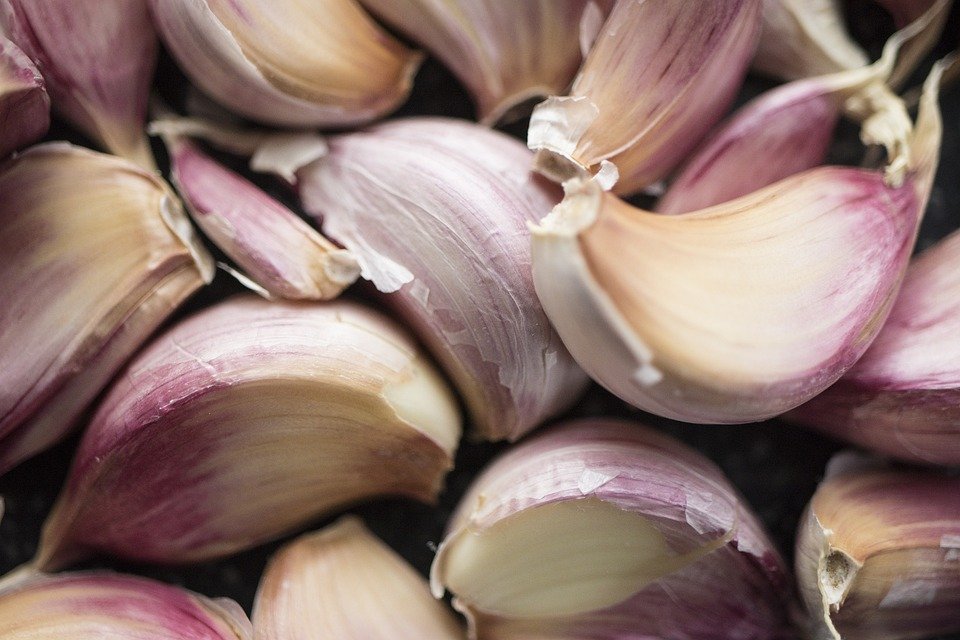the Importance of Daily Caloric Intake for Weight Loss
Losing weight and maintaining a healthy body is a goal that many of us strive for. One of the key factors in achieving this goal is understanding the concept of daily caloric intake. In simple terms, calories are a measure of energy that our bodies obtain from the foods we consume. By managing our daily calorie intake, we can effectively control our weight. In this article, we will explore the significance of daily calorie intake for weight loss, and provide practical tips to help you achieve your goals.
Understanding Daily Caloric Needs
To begin our weight loss journey, it is crucial to determine our daily caloric needs. The number of calories our bodies require differs based on various factors, including age, sex, height, weight, and activity level. This number is known as our Total Daily Energy Expenditure (TDEE). TDEE represents the total number of calories needed to maintain our current weight.
Calculating TDEE can be done using online calculators or formulas that take into account the factors mentioned above. It is important to note that TDEE is just a starting point, and adjustments may be required depending on individual circumstances or goals.
Creating a Caloric Deficit
Now that we understand our TDEE, the next step in our weight loss journey is creating a caloric deficit. A caloric deficit occurs when we consume fewer calories than our bodies require to maintain our current weight. This deficit forces our bodies to tap into stored energy, resulting in weight loss.
To create a caloric deficit, it is recommended to reduce daily caloric intake by around 500-1000 calories. This reduction allows for a steady and sustainable weight loss of approximately 1-2 pounds per week. However, it is important to strike a balance between creating a deficit and providing our bodies with the necessary nutrients for optimal functioning.
The Role of Macronutrients
While the total number of calories consumed is crucial for weight loss, the quality of those calories is equally important. Macronutrients, including carbohydrates, proteins, and fats, play a significant role in our overall health and weight management.
Carbohydrates are the body’s primary energy source and should make up a significant portion of our daily caloric intake. However, it is essential to choose complex carbohydrates such as whole grains, fruits, and vegetables, as they provide essential nutrients and fiber while keeping us fuller for longer.
Proteins are the building blocks of our body and are vital for muscle repair and growth. Including lean sources of protein such as chicken, fish, tofu, and legumes in our diet can help increase satiety and preserve muscle mass during weight loss.
Fats are an important part of a balanced diet, but choosing healthy fats is crucial. Incorporating sources of unsaturated fats, like avocados, nuts, and olive oil, can provide essential fatty acids and promote heart health.
The Role of Exercise in Weight Loss
While managing our daily caloric intake is a significant component of weight loss, incorporating regular exercise into our routine can greatly enhance our progress. Exercise not only aids in burning calories but also helps to build muscle, increase metabolism, and improve overall fitness.
Engaging in a combination of cardiovascular exercises, such as running or swimming, and strength training exercises, such as weightlifting or bodyweight exercises, can help maximize weight loss efforts. Additionally, incorporating physical activity into our daily lives, such as taking the stairs instead of the elevator or going for a walk during breaks, can contribute to overall calorie expenditure and weight management.
Maintaining a Balanced Lifestyle
As we embark on our weight loss journey, it is essential to remember that sustainability and balance are key. While creating a caloric deficit is necessary for weight loss, it is equally important to nourish our bodies with nutrient-dense foods and practice mindful eating.
Finding a balance between indulging in our favorite foods occasionally and making healthier choices most of the time is crucial for long-term success. Remember that weight loss is a gradual process, and patience, consistency, and self-compassion are essential along the way.
In conclusion, understanding and managing our daily caloric intake is fundamental for weight loss. By calculating our Total Daily Energy Expenditure (TDEE) and creating a caloric deficit, we can effectively achieve our weight loss goals. Additionally, considering the role of macronutrients, incorporating exercise, and maintaining a balanced lifestyle are crucial components of a successful weight loss journey. Remember, it is not just about losing weight but also about adopting healthy habits that will lead to a happier and healthier life.
Common Inquiries Regarding Lose Weight Daily Calories
1. How many calories should I consume daily to lose weight?
To lose weight, you should consume fewer calories than your body needs to maintain its current weight. The number of calories you should consume daily to achieve weight loss depends on several factors, including your age, gender, weight, height, activity level, and weight loss goals. However, a general guideline is to create a calorie deficit of 500 to 1000 calories per day, which can lead to a safe and sustainable weight loss of 1 to 2 pounds per week.
Important information:
1. Creating a calorie deficit is essential for weight loss.
2. The recommended calorie deficit is 500 to 1000 calories per day.
3. Aim for a safe and sustainable weight loss of 1 to 2 pounds per week.
2. How can I determine the number of calories I need to consume for weight loss?
To determine the number of calories you need to consume for weight loss, you can use an online calorie calculator or consult with a healthcare professional. These tools take into account your age, gender, weight, height, activity level, and weight loss goals to provide an estimate of the number of calories you should consume daily. It’s important to note that these calculations are just estimates, and individual variations may exist.
Important information:
1. Online calorie calculators and healthcare professionals can help determine your daily calorie needs.
2. Factors such as age, gender, weight, height, activity level, and weight loss goals are considered in the calculation.
3. Individual variations may exist, so it’s important to monitor your progress and make adjustments if needed.
3. What should I consider when choosing the right mix of macronutrients for weight loss?
When choosing the right mix of macronutrients for weight loss, it’s important to focus on the quality of the calories you consume. Aim to include a balance of carbohydrates, proteins, and fats in your diet. Carbohydrates provide energy, proteins support muscle growth and repair, and fats are essential for various bodily functions. However, the proportions of these macronutrients may vary based on individual needs and preferences. It’s crucial to prioritize nutrient-dense foods, such as fruits, vegetables, lean proteins, whole grains, and healthy fats, while limiting processed foods, sugary beverages, and excessive amounts of saturated fats and added sugars.
Important information:
1. Focus on the quality of the calories you consume.
2. Include a balance of carbohydrates, proteins, and fats in your diet.
3. Prioritize nutrient-dense foods and limit processed foods, sugary beverages, saturated fats, and added sugars.
4. Should I completely avoid fats when trying to lose weight?
No, you should not completely avoid fats when trying to lose weight. Fats play a crucial role in our diet by providing energy, supporting cell growth, protecting organs, and helping our bodies absorb essential vitamins. However, it’s important to choose healthy fats, such as those found in nuts, seeds, avocados, olive oil, and fatty fish, while limiting saturated fats and trans fats. Healthy fats can help you feel more satisfied and prevent overeating, so including them in moderation can be beneficial for weight loss.
Important information:
1. Avoid completely avoiding fats in your diet.
2. Choose healthy fats, such as nuts, seeds, avocados, olive oil, and fatty fish.
3. Limit saturated fats and trans fats while including healthy fats in moderation.
5. Is it necessary to count calories to lose weight?
Counting calories is not necessary for everyone to lose weight, but it can be a helpful tool for some individuals. Keeping track of your calorie intake can provide awareness of portion sizes, help identify areas where you may be consuming excess calories, and assist in creating a calorie deficit. However, it’s important to approach calorie counting with a balanced mindset and not become obsessed with numbers. Developing a healthy relationship with food and making sustainable lifestyle changes are key to successful weight loss.
Important information:
1. Counting calories is not necessary for everyone to lose weight.
2. It can provide awareness of portion sizes and help identify excess calorie consumption.
3. Developing a healthy relationship with food and making sustainable lifestyle changes are essential for weight loss, regardless of calorie counting.
1. Eating fewer calories always leads to weight loss
One common misconception about losing weight is that eating fewer calories always leads to weight loss. While reducing calorie intake is an important aspect of weight loss, it is not the only factor determining success. Other factors such as the quality of the calories consumed, individual metabolism, and overall lifestyle choices play significant roles as well. Simply cutting calories without considering these factors may not result in sustainable weight loss.
2. All calories are created equal
Another misconception is that all calories are created equal, meaning that it doesn’t matter where the calories come from as long as the total intake is reduced. However, the source of calories can impact weight loss and overall health. For example, consuming nutrient-dense foods like fruits, vegetables, and lean proteins not only helps in weight management but also provides essential vitamins and minerals. On the other hand, relying on processed and high-sugar foods, even if they fit within calorie limits, can hinder weight loss efforts and have negative effects on health.
3. Eating very low-calorie diets is the quickest way to lose weight
Many people believe that eating very low-calorie diets is the quickest way to lose weight. While severe calorie restriction may lead to initial weight loss, it is not a sustainable or healthy approach in the long run. Very low-calorie diets can deprive the body of essential nutrients, slow down metabolism, and trigger muscle loss. Additionally, these diets often result in rebound weight gain once normal eating patterns are resumed. It is important to adopt a balanced and moderate approach to calorie reduction for sustainable and healthy weight loss.
4. The number of calories burned during exercise is the most important factor
Some individuals focus solely on the number of calories burned during exercise as the most important factor for weight loss. While exercise is an important component of a healthy lifestyle and can aid weight loss, it is not the sole determinant. The total number of calories burned during exercise is often overestimated, and it can be easy to compensate for those calories by consuming more food. Additionally, weight loss is influenced by factors such as overall daily activity levels, diet, and genetics. A well-rounded approach that combines exercise with proper nutrition and lifestyle modifications is crucial for successful weight loss.
5. Rapid weight loss is always better than slow weight loss
Many people believe that rapid weight loss is always better than slow weight loss. However, this is not necessarily true. While losing weight quickly may seem appealing, it can have negative consequences. Rapid weight loss often involves extreme calorie restriction or fad diets, which can lead to nutrient deficiencies, muscle loss, and other health complications. Slow and steady weight loss, on the other hand, allows the body to adjust gradually and increases the likelihood of maintaining the weight loss in the long term. It is important to focus on sustainable lifestyle changes rather than quick fixes for lasting results.
Lose Weight Daily Calories
#Lose #Weight #Daily #Calories


